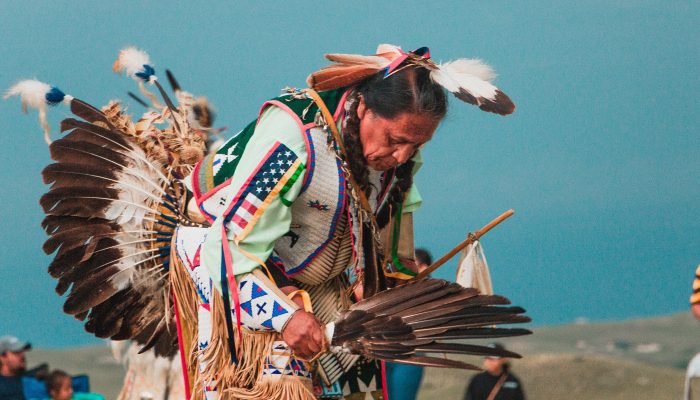A federal judge has ruled that the U.S. government has a treaty obligation to support law enforcement on the Pine Ridge Reservation in South Dakota, but declined for now to determine whether the Oglala Sioux Tribe is entitled to as much funding as it’s seeking.
Tribal leaders depicted the ruling as a victory, saying the important point is that the court confirmed that the federal government has a duty to fund policing on the reservation and ordered U.S. officials to meet with Oglala Sioux leaders “to work together promptly to figure out how to more fairly fund tribal law enforcement.”
The outcome of the case could affect other reservations, including some where Native women are killed at a rate more than 10 times the national average. The Northern Cheyenne Tribe in Montana has filed a similar lawsuit.
Oglala Sioux officials contend the tribe is entitled to federal funding for 120 fully equipped officers for the sprawling Pine Ridge Reservation, something the federal government has disputed.
“This Court concludes that the United States has a treaty duty unique to the Tribe to provide protection and law enforcement cooperation and support on the Reservation. … However, the Tribe has not shown at this stage that a duty extends to entitle the Tribe to the level of funding or support that it sought,” U.S. District Judge Roberto Lange said in an order filed Tuesday.
The tribe sued the Bureau of Indian Affairs and some high-level officials last July. The court held a two-day hearing in February.
The government denied having any such obligation and asked the judge to dismiss the lawsuit.
Lange directed the Bureau of Indian Affairs to help the tribe refine its funding requests “as soon as practicable” to reflect its treaty obligations. He also told the federal government to reevaluate its census-based population estimates for the reservation of 19,800 to 32,000, which are lower than the tribe’s figure of 40,000. The judge said the federal estimates likely represent an undercount.
You can read the full article at CBS News.

